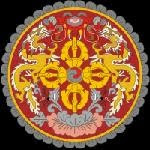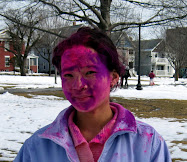Are you prepared for an emergency? Knowing what constitutes an emergency, where to get help and what to do while you're waiting for help can save a life. Here are some tips from the American College of Emergency Physicians.
First, remember that prevention remains the best cure. Get routine medical and preventive care from a family doctor. Getting necessary immunizations and treating minor illnesses before they get serious can minimize visits to the emergency department.
If the medical problem or illness problem is NOT an "emergency", call your doctor, or for sick ADULTS call the Community Health Center (802) 864-6309 or for sick CHILDREN, call the Vermont Children's Hospital - General Pediatrics office (802) 847-4696.
If you suspect the medical or illness problem is an "emergency", then dial 911 for help.
Learn how to recognize emergency warning signs.
Some warning signs of a medical emergency include difficulty breathing or shortness of breath, chest or upper abdominal pain or pressure, fainting, sudden dizziness, weakness or change in vision, confusion or change in mental status, sudden severe pain, bleeding that won't stop, severe or persistent vomiting, coughing up or vomiting blood, suicidal or homicidal feelings.
Know where to get help.
Our community has the 911 emergency number and dialing it will put you in touch with emergency medical help. Even small children can be taught to dial an emergency number.
Dialing 911 will speed dial your phone call to the emergency dispatcher. When dialing 911 from a mobile or cellular phone please remember that your location and caller identification is not always displayed. Please stay on the line with the dispatcher until you are instructed to hang up. Always be aware of your location and be prepared to tell the dispatcher where you are.
Learn what to do until help arrives.
Knowing CPR and choking rescue procedures is important, especially if you have small children in the house. Your local American Red Cross chapter (802) 660-9130 may offer these courses. It's also important to know the basics of first aid, so you can stop serious bleeding, manage shock or handle fractures until emergency help arrives.
It's also important to know what NOT to do.
- While it's smart to keep Syrup of Ipecac in the house in case your child swallows poison, it should not be used with all poisons. Call the Poison Control Center (800 - 222-1222) or the Fletcher Allen Hospital Emergency Department (FAHC)for advice: (802) 847-2434.
- Never move anyone who is unconscious or has struck his head or was injured in a car crash, unless he or she is in danger.
- When treating burns, don't use ice or butter or petroleum jelly. If the burn forms a blister that is large or deep, get immediate emergency help.




